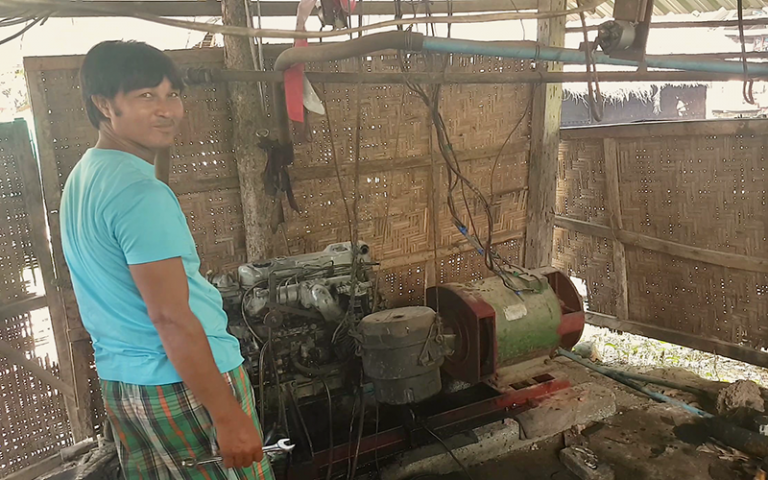CEGE alumna’s fundraiser to spark company success
18 February 2019
Engineering for International Development MSc graduate Natasha Allen has started a fundraiser for her rural electricity-focused social enterprise, Mee Panyar.

Most of us couldn’t imagine a world without easy access to reliable electricity sources. But for the majority of the population in Myanmar, a lack of electricity is their everyday reality.
With less than half of Myanmar's population having access to reliable electricity, Engineering for International Development (EfID) MSc alumna Natasha Allen saw an opportunity to put her knowledge and skills to good use, founding and becoming Managing Director of Mee Panyar, a social enterprise that seeks to enable rural communities to more effectively manage and operate their off-grid electricity systems, with an initial focus on Myanmar.
Existing mini-grids in rural Myanmar typically run for only a few hours per day, generate electricity that is more expensive than the Myanmar national grid average, and run on environmentally unfriendly and expensive diesel. Natasha and her team have found that these rural communities want to improve their mini-grids, but lack the expertise and finance to do so. Mee Panyar was founded to address both these issues.
Natasha, who graduated from UCL in 2018, has started a fundraiser for Mee Panyar’s pilot training scheme, which will show local rural electricians, or meesayar, how to improve existing mini-grid electricity systems, and how to hybridise current diesel technology with solar electricity. Such hybridisation aims to result in lower household energy prices, increased operator profit, and reduced carbon emissions. Initially set to be trialled in one area, if successful, the training and support will be rolled out to reach more of rural Myanmar. As Natasha comments, “rather than start from scratch, we believe that we can achieve more, and have lasting impact, by building on what communities have already built themselves.”
Noting how her MSc EfID experience has helped her career path, Natasha comments that the programme “really solidified the understanding that 30% of the solution is technology and 70% is people, which, as it turns out, is the hardest part! I really enjoyed that most of our courses emphasised project-based learning and encouraged us to think holistically and practically about the actual challenges of working on engineering problems in developing contexts.”
With over $30,000 raised already, Mee Panyar’s fundraiser is almost at its target goal - however, the full $40,000 must be raised in order for Mee Panyar to receive anything. Nevertheless, such success is something to celebrate for Dr Priti Parikh, MSc EfID founder and Natasha's former programme director. “I am exceptionally proud of Natasha’s success so far with Mee Panyar, and I will continue to watch developments eagerly. It is wonderful to see our MSc EfID students develop over the course of the programme, exploring their passion for international development, and gaining the skills and knowledge to put such passions and interests to good use. Our students and alumni continue to inspire me with their visions for how engineering can help make people’s lives, and the world, better.”
Links
- Mee Panyar website
- Mee Panyar fundraiser
- Myanmar Living Conditions Survey 2017
- Engineering for International Development MSc
- Life at CEGE page (see Natasha’s case study)
 Close
Close

